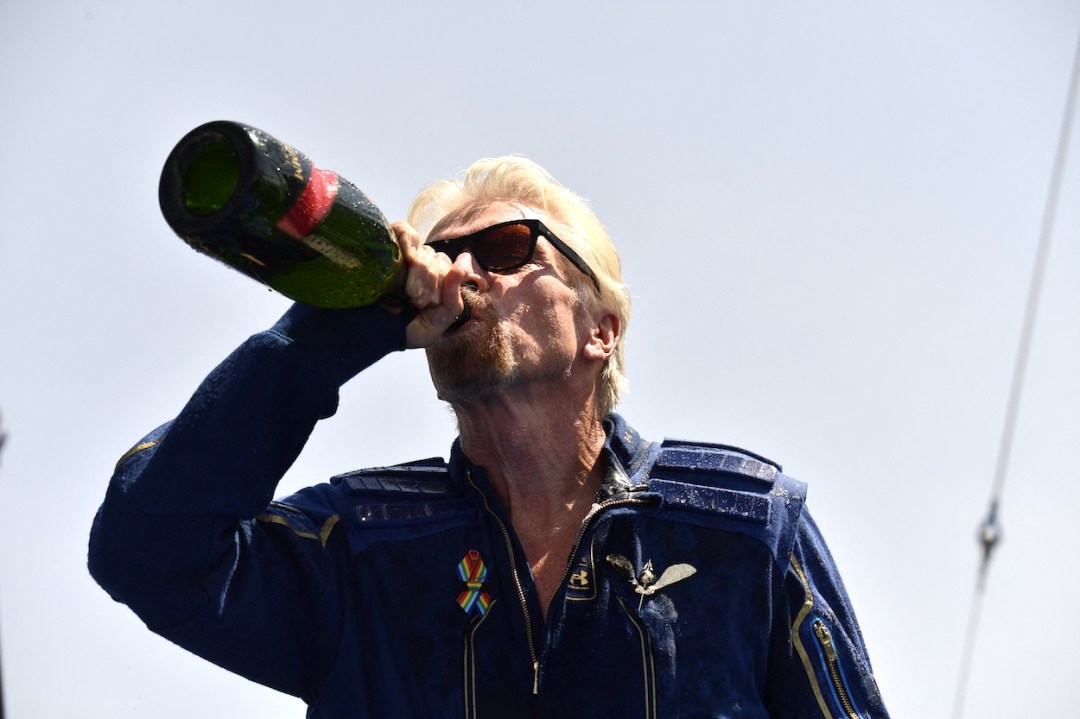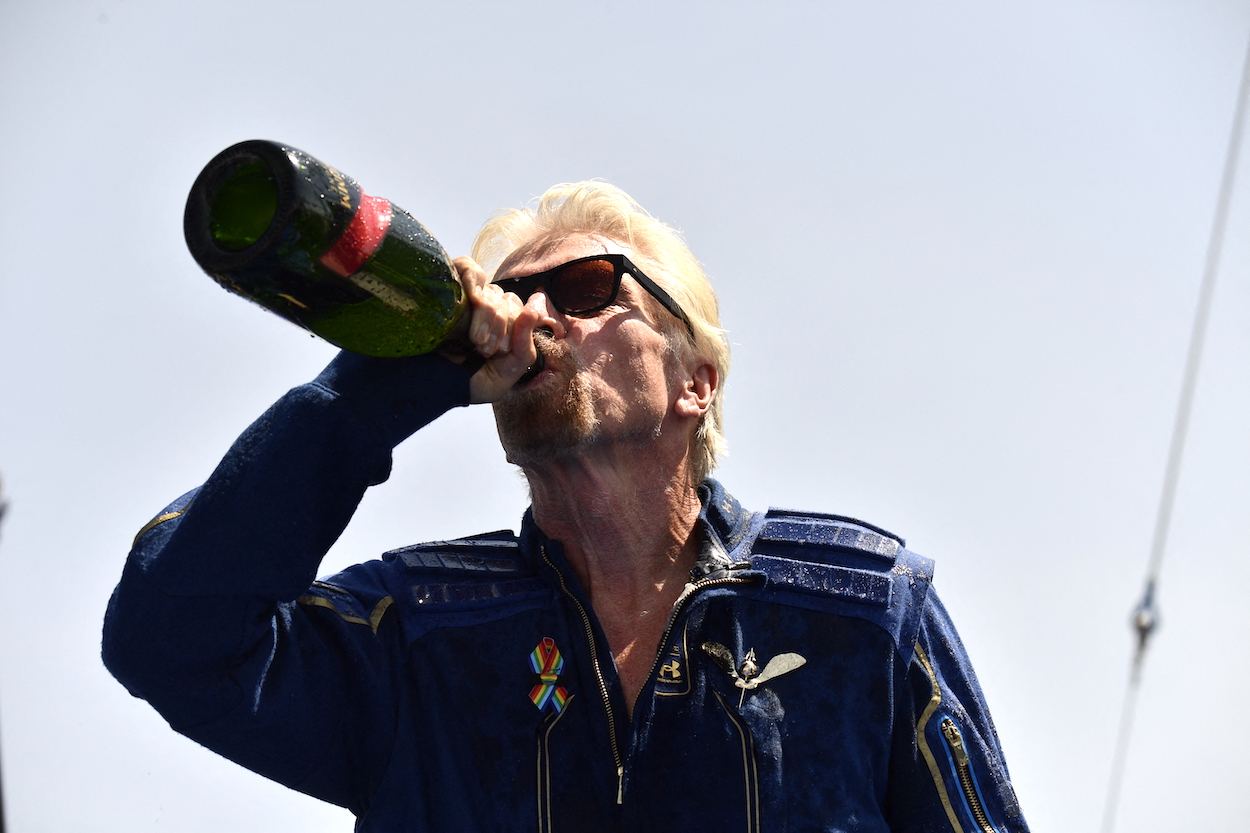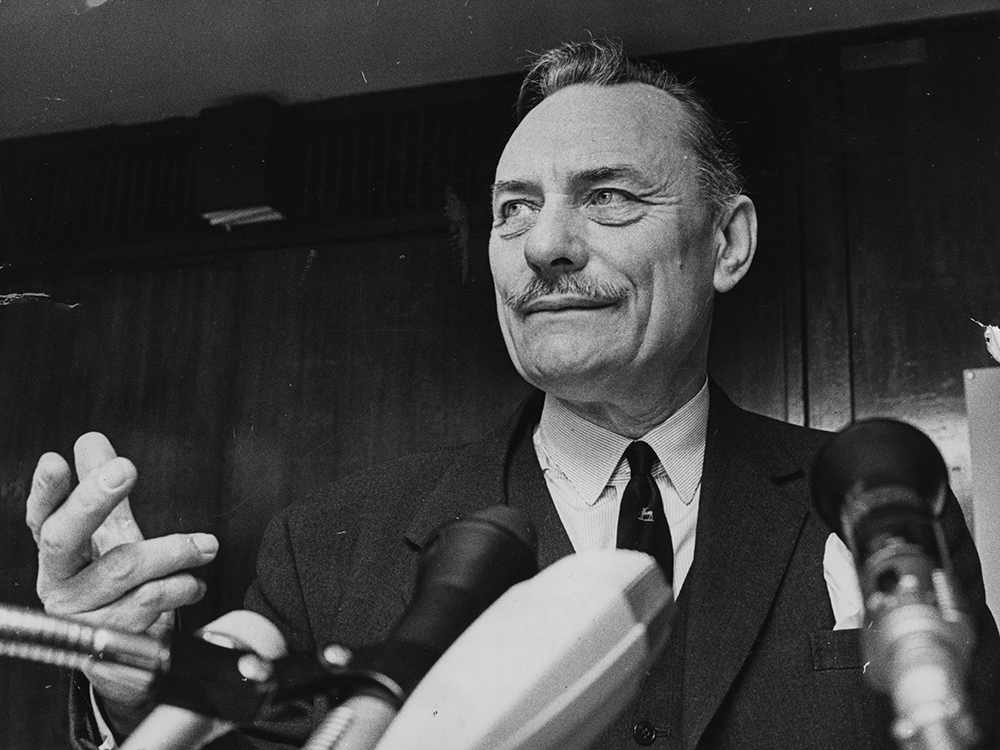I’ve had many encounters with Sir Richard Branson over the 40 years since he launched Virgin Atlantic, the smart, stylish British airline that arguably should be this country’s premier national flag carrier. (As it happens, a Spanish-registered airline called British Airways is the dubious claimant to that status.)
The oddest and most revealing meeting took place in 1996 around the time he was planning to re-enter the music market. Five years earlier, Branson had sold Virgin Records to EMI for £550 million. I was living in New York and was looking for financial backing for a musical I’d helped create. I called Branson in London, expecting to be fobbed off. Instead, he told me he was coming to New York imminently and that we should discuss the project over breakfast. I couldn’t believe my luck and immediately told my partners to prepare for wealth, fame and Broadway.
It has been Branson’s other significant personality trait – a fearless, sometimes reckless derring-do
At breakfast I painstakingly walked my potential angel through the plot line, characters, and songs of Save The Last Dance for Me, a story about the songwriter factory that was the Brill Building before the Beatles landed in America. Within seconds Branson’s eyes had glazed over and they remained glazed. Then, when I expected him to make his apologies and swiftly take his leave, he said: ‘I know exactly who would be interested in working with me on this. Simon Draper. I want you to go back to your office, call Simon in London and repeat what you’ve just told me.’
I had been at university with Draper, Branson’s second cousin and the brains behind the Virgin music label. I also knew that he had happily retired, hugely wealthy from his share in the Virgin empire after the sale to EMI. His first words when I called him were: ‘I’m afraid I’m going to break your heart.’
Draper said that Branson was using me and my project to try and lure him back into the music industry. In short, he needed Draper’s expertise to help him launch V2, the son of Virgin Music, now that the non-compete clause in the EMI contract had lapsed. ‘You don’t need to tell me about your musical project,’ Draper said. ‘I’m just not interested in going back. I’m very sorry.’
I was not surprised when I spoke to Branson last week that he barely remembered the meeting. He is famously forgetful, to the extent that for years he had a PR flak beside him at public events whispering the names and job descriptions of approaching individuals. He has also been notoriously ditsy, impetuous, rash and awkward, all unusual traits in who was supposedly Margaret Thatcher’s favourite British entrepreneur and who has, among his many achievements, created a first-class international airline, against the odds, out of nothing.
The reason we were speaking is that it is Virgin Atlantic’s 40th anniversary this month. It is a significant birthday for an airline that took on international behemoths such as British Airways, Pan Am and TWA with a single leased Boeing 747 and has survived while two of those three have ceased to exist. When that first 747 landed at Newark airport in 1984 Branson became, according to his former American operations chief David Tait, ‘America’s most famous illegal immigrant.’ He’d arrived without any documentation, having left his passport at home. Tait managed to persuade the head of immigration, who was at the airport to greet the incoming flight, to waive the rules, and Branson marched on. And on.
‘Those were the most full-on months of my life,’ Branson says. ‘The day before the inaugural flight we’d had a test flight with CAA (Civil Aviation Authority) inspectors on board to formalise our licence and one of the engines exploded. We started the airline in a couple of months from scratch. There was a lot of pressure.’
David Tait had previously worked for Sir Freddie Laker, who was Branson’s mentor after Laker’s pioneering, cut-price trans-Atlantic Skytrain had been driven out of business by the major airlines two years earlier. Tait remembers Sir Freddie calling him, laughing. ‘He said “I’ve just had a call from this rock’n’roll chap who thinks he can start a fucking airline. He is clearly as mad as a hatter, but I’ve recommended he hire you. If I were you I’d double what I was paying you and see what he says.” Ten minutes later Richard phoned me.’
It was Laker who advised Branson to avoid the Skytrain error of specialising in cut-price economy fares ‘because that made it easy for BA and the others to pick off those routes, lower the fares temporarily, drive you out of business, and then put them up again when you’re out of the way.’ Which is precisely what happened to Skytrain. (When Branson wanted to name one of his first 747s The Spirit of Sir Freddie, Laker himself declared it a bad idea given Skytrain’s sad ending. Branson took his advice.)
‘When British Airways launched the Dirty Tricks campaign against us they came close to succeeding,’ Branson says somewhat ruefully, ‘but thanks to Freddie’s advice and the fact that our loyal customers stuck with us we survived.’
Laker also told Branson he had to be the face of the airline just as he himself had been the face of Skytrain. ‘He told me to get myself on the front pages of the papers,’ Branson says, ‘and to get over any shyness, even if it involved picking up a lady and turning her upside down.’ That he did, most notoriously at a business magazine’s awards lunch at the Dorchester in 1991 when he lifted up an astonished Ivana Trump and turned her upside down in front of all the guests. The following morning the photograph of the event was all over the newspapers. Virgin was soon running an advertising campaign with the slogan: ‘Once again, Virgin turns up trumps.’
Branson ascribes such eccentric behaviour to his determination to overcome crippling shyness that blighted him through his life. It was a condition that even when he was a teenager his indomitable mother Eve demanded he put aside. ‘She insisted shyness was a kind of selfishness. I had to stop thinking about myself and get up on stage and perform. So, I overcame it,’ he says.
And it has been Branson’s other significant personality trait – a fearless, sometimes reckless derring-do – that has also kept the Virgin name in the headlines. His crossing the Atlantic and the Pacific in hot air balloons that very nearly ended in disaster; his smashing the world record for the fastest Atlantic crossing in Virgin Atlantic Challenger II after Challenger I had hit a submerged object and sunk; and his flirtation with space tourism, the latest Virgin Galactic test flight into inner space having taken place days ago. All of this, he says, to help promote the Virgin brand.
Branson’s other great skill as a businessman has been to bring in key people to help run businesses he didn’t fully understand. He famously had a tin ear when it came to music and knew very little of the airline business when he plunged in. Thus, Simon Draper in the music industry, David Tait and another Laker graduate, Roy Gardiner, to run the airline and many others in his ever-expanding Virgin empire. ‘In my experience the key to running any business is finding people who are better than you, who know more than you,’ he tells me.
Tait’s aviation marketing acumen also prevented Branson from formally calling Virgin Atlantic’s economy section Riff Raff Class. ‘Tait was brilliant,’ Branson concedes, ‘He was grounded and knew the pitfalls well.’ Branson clearly did not.
But Virgin Atlantic’s challenges remain as daunting as ever. Last year the airline lost £139 million. The last time it made a profit was in 2016. However, both Branson and his CEO Shai Weiss, while accepting the difficulties, remain optimistic. They need to. The Gulf airlines – Emirates, Etihad, and Qatar – have all copied Branson’s inflight innovations and added vast petro-dollars to the mix. Even the old enemy BA is reportedly investing $9 billion in an upgrade of its lounges, seats and general passenger facilities.
Branson is undaunted. ‘On that inaugural flight I remember thinking that if we had the same spirit five years out, I’d be delighted,’ says Branson. ‘Forty years on I fly Virgin and that spirit is still there. I’m incredibly proud. Proud to be Britain’s flag carrier.’ Eventually, Sir Richard Branson, like Logan Roy in Succession, intends to hand the Virgin empire over to his children. Hopefully real life pans out better than television drama.








Comments